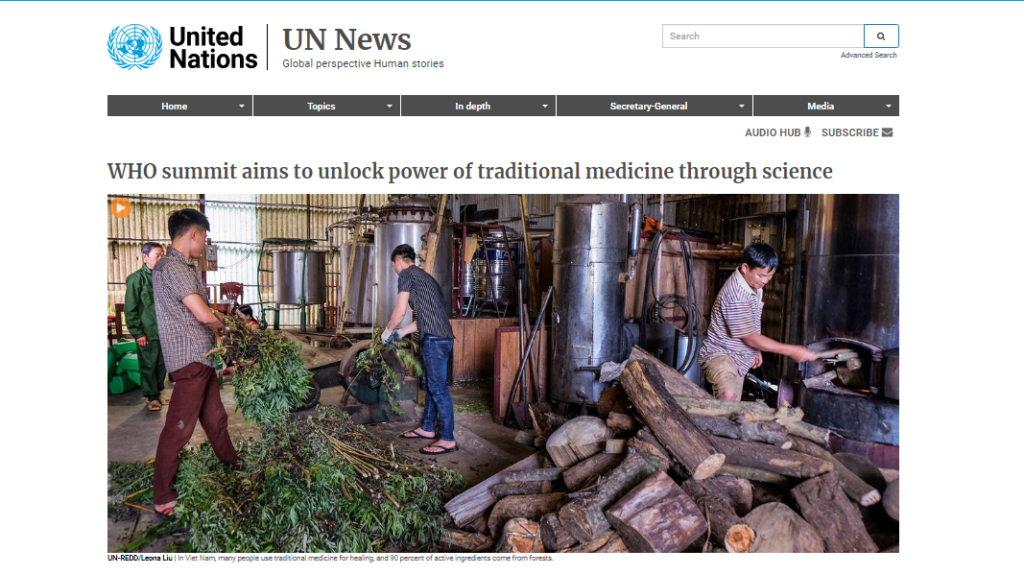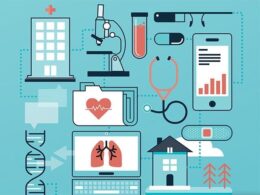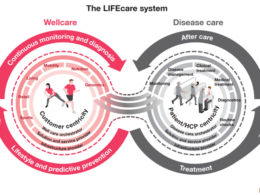the health strategist
research institute for health strategy
and digital health
Joaquim Cardoso MSc.
Chief Research and Strategy Officer (CRSO),
Chief Editor and Senior Advisor
August 18, 2023
What is the message?
Traditional medicine holds significant value in global healthcare and should be recognized as complementary to modern medical practices.
The World Health Organization (WHO) convened the first-ever global Traditional Medicine Summit to highlight the contributions of traditional medicine to human health and the environment.
The summit aims to bridge the gap between ancient wisdom and modern science for the well-being of people and the planet.
Key takeaways:
Global Traditional Medicine Summit: The first-ever global Traditional Medicine Summit organized by the World Health Organization (WHO) took place in Gandhinagar, India. The summit aimed to facilitate the sharing of evidence and best practices in the field of traditional medicine.
Contributions of Traditional Medicine: WHO Director-General Tedros Adhanom Ghebreyesus highlighted the significant contributions of traditional medicine to human health and its understanding of the interconnectedness between health and the environment.
Integration of Ancient Wisdom and Modern Science: Tedros emphasized the importance of combining ancient wisdom and modern scientific advancements for the benefit of both people and the planet.
Complementarity of Traditional and Modern Medicine: The Director-General of the World Trade Organization (WTO), Ngozi Okonjo-Iweala, expressed that traditional medicine is not in opposition to modern medicine but rather serves as a complementary approach.
Historical Origins of Modern Medicines: Traditional medicine has ancient roots and has contributed to the development of modern drugs. For instance, aspirin’s origin can be traced back to ancient use of willow tree bark, and artemisinin, a key malaria treatment, was derived from traditional Chinese medical practices.
Growing Global Demand: Contrary to being considered outdated, traditional medicine is experiencing growing demand worldwide. It plays a vital role in mental health, healthy aging, and preventing/treating non-communicable diseases.
WHO’s Strategy for Traditional Medicine: In 2014, WHO’s Member States approved a ten-year strategy for traditional medicine. The organization aims to develop a new strategy by 2025 to further integrate traditional and complementary medicine into healthcare systems.
Safe and Equitable Use: The WHO Global Centre for Traditional Medicine, launched in India in the previous year, seeks to inform policies and regulations for the safe, cost-effective, and equitable utilization of traditional remedies.
Scientific Validation: WHO is working to provide evidence and scientific validation for traditional medicine to ensure its safety and effectiveness for millions of users around the world. When scientifically validated, traditional medicine can bridge healthcare access gaps.
Gujarat Declaration: The summit is expected to result in the adoption of the Gujarat Declaration, which aims to enhance the appropriate integration of traditional medicine into healthcare services provided by different states.
Overall, the Traditional Medicine Summit highlights the valuable role traditional medicine plays in global healthcare, its compatibility with modern medical practices, and the ongoing efforts to validate its effectiveness through scientific means.
DEEP DIVE

WHO summit aims to unlock power of traditional medicine through science
The United Nations
August 17, 2023
The first global Traditional Medicine Summit convened by UN health agency WHO, got underway this week in the Indian city of Gandhinagar focused on sharing evidence and best practices in this field.
Speaking at the event on Thursday, WHO Director-General Tedros Adhanom Ghebreyesus underscored the “enormous” contributions of traditional medicine to human health and its understanding of the “intimate links” between health and the environment.
Tedros stressed the importance of the gathering for “bringing together ancient wisdom and modern science for the health and well-being of people and planet”.
Echoing his words, the Director-General of the World Trade Organization (WTO), Ngozi Okonjo-Iweala said that traditional medicine is not opposed to modern medicine, but rather complementary.
Ancient roots of modern medicine
Recalling that traditional medicine was “as old as humanity itself”, the WHO chief noted that many modern drugs trace their roots to ancient healing practices.
He gave the example of bark from the willow tree, used by Sumerians and Egyptians as a pain reliever and an anti-inflammatory over 3,500 years ago. “Then in 1897, the chemist Felix Hoffmann synthesized aspirin and the drug has gone on to improve, and save, the lives of millions of people every day,” Tedros said.
He also cited a 1971 breakthrough for malaria remedies, when China’s Tu Youyou read about the use of sweet wormwood to treat fevers in traditional Chinese medical literature. This led her team to isolate the compound artemisinin, which has become the “backbone” of malaria treatment.
‘Growing demand’
The WHO Director-General insisted that far from being a thing of the past, traditional medicine is the object of growing demand worldwide. He highlighted its importance for mental health, healthy aging, and preventing and treating non-communicable diseases.
“This is not a new area for WHO”, he said, recalling that back in 2014, the organisation’s Member States approved the first global ten-year strategy for traditional medicine, adding that a new strategy will be developed by 2025.
Integrate traditional medicine
Through the summit – and the WHO Global Centre for Traditional Medicine launched in the Indian city of Jamnagar last year – the UN agency has been working to “inform policies, standards and regulations for the safe, cost-effective, and equitable use” of traditional remedies, Tedros said.
He urged countries to examine how best to incorporate traditional and complementary medicine into their health systems and “unlock [its] power through science and innovation”.
The WHO chief said that the Gujarat Declaration, which is expected to be adopted by the end of the summit, has the potential to enhance the “appropriate integration” of traditional medicine into states’ healthcare services.
‘Scientific validation’
WHO wrote on the social platform X that their work aimed to bring evidence and scientific validation around traditional medicine so that millions of people around the world who use it “understand whether it’s safe and effective and are better protected”.
“When scientifically validated, traditional medicine has the potential to bridge [healthcare] access gaps for millions around the world,” the agency said.
Originally published at https://news.un.org








